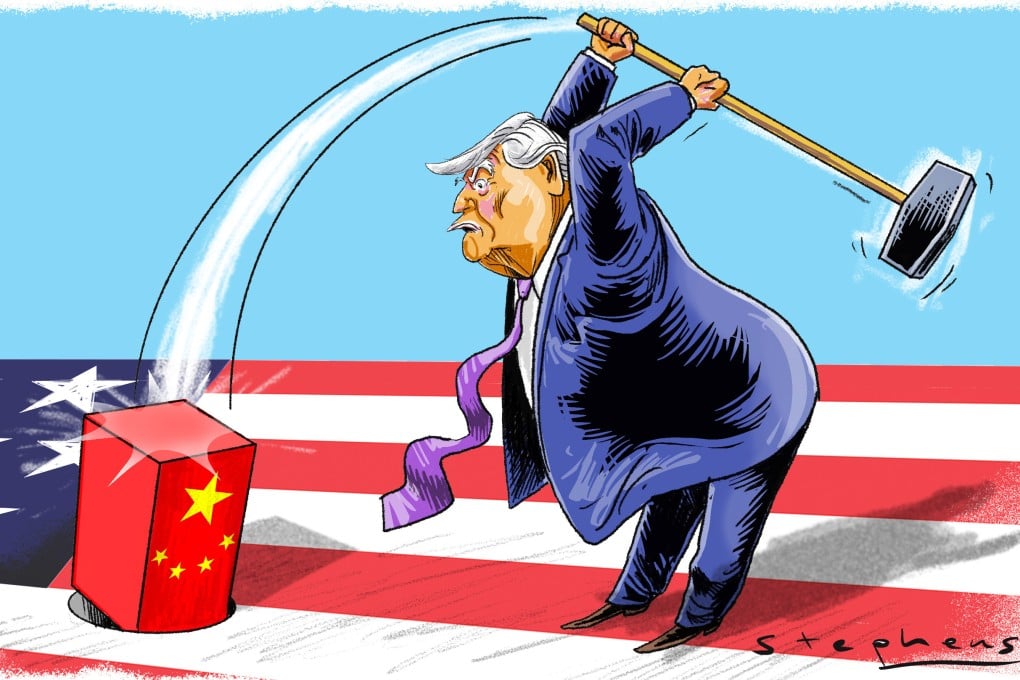Advertisement
Opinion | Trump cannot hope to solve a China ‘problem’ he has misdiagnosed
The US president fails to grasp that a rising China is a new question to answer, not an old mistake to correct
Reading Time:3 minutes
Why you can trust SCMP
6

Amid a US-China trade truce, negotiators in London reached a “framework” agreement to activate the Geneva deal, raising hopes for an immediate alleviation of the trade conflict, including potentially a US commitment to revoke some of its tech embargoes in return for China’s relaxation of rare earth export restrictions.
The full details of the London agreement are expected to be available after both US President Donald Trump and President Xi Jinping have approved it.
The two-day London negotiations had swiftly followed Trump’s call with Xi last Thursday, more than four months into his second term. Both sides had continued to cross swords over trade after their officials met in Geneva last month.
Advertisement
Following Washington’s global boycott of Chinese-made high-end computing chips, including Huawei Technologies’ Ascend, Beijing responded by threatening to punish those who complied. Just a day after the Trump-Xi call, news emerged that Washington had stopped issuing licences to ship nuclear plant parts to China.
Critically, China unprecedentedly tightened its rare earth exports, displaying its ability to retaliate. The pain inflicted on US car manufacturers and defence companies was obviously the most pressing reason for Trump to talk to Xi, as the trade tussle was rapidly escalating into a crisis of global supply chains.
Advertisement
The London talks may have de-escalated tensions but I see little room for optimism – unless they also spark a reorientation of Washington’s trade and foreign policy thinking.
Advertisement
Select Voice
Choose your listening speed
Get through articles 2x faster
1.25x
250 WPM
Slow
Average
Fast
1.25x
